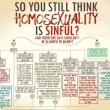Understanding Who God Really Is
by Thomas M. Cothran
Filed under The Existence of God

NOTE: This is the third and final part of a three part series on classical theism by theologian Thomas M. Cothran. Be sure to read part one and part two. Any defense against Stephen H. Webb’s critique of classical theism must, then, defend some particular form of classical theism that does have an ontology. Webb declares that “Aquinas is the best representative of what is often called classical theism,”1 and so for the remainder of this article, we will consider whether Webb’s... Read More
A Bad Case Against Classical Theism
by Thomas M. Cothran
Filed under The Existence of God

NOTE: This is the second of a three part series on classical theism by theologian Thomas M. Cothran. Read part one here. Stephen Webb not only misstates what classical theists believe, he misstates why they believe it. Consider, by way of example, Webb’s review of David Bentley Hart’s The Experience of God. Webb claims that Hart infers “the main tenets of classical theism … from the deceptively simple premise of God’s immateriality.” Webb attributes a similar line of... Read More
What is Classical Theism?
by Thomas M. Cothran
Filed under The Existence of God

NOTE: This is the first of a three part series on classical theism by theologian Thomas M. Cothran. Over the last few years, Stephen H. Webb has waged a crusade of sorts against classical theism, especially with respect to its notion of divine transcendence. Webb has authored, by my count, no less than 10 articles on the subject at First Things1, and similar critiques have also been central to his books Mormon Christianity and Jesus Christ, Eternal God. Perhaps surprisingly, Webb... Read More
Love, Tolerance, and the Making of Distinctions
by Bishop Robert Barron
Filed under Man

I recently wrote a piece on Bruce Jenner’s transformation into Caitlyn Jenner. I argued that the manner in which Jenner spoke of his transition reflected a Gnostic anthropology, which is repugnant to a Biblical view of the human being. I didn’t say a word about Jenner personally; I urged no violence against him/her; I didn’t question his/her motives. I simply made an observation that the moral and spiritual context for transgenderism is, from a classically Christian standpoint,... Read More
Is Religion Evil? Secularism’s Pride and Irrational Prejudice
by Carl Olson
Filed under Christianity and Violence

The common wisdom in many circles (most located in certain cities on the East and Left Coasts) is that religion, in general, is a bad thing, and that in the hands of "fundamentalists," the Ku Klux Klan, neo-Nazis, and ultra-super-radical-Islamic terrorists, it is inevitably evil. Eliminating religion, it is then suggested or even openly argued, is a sure way to rid the world of evil. The term "religion," it should be noted, almost always refers to Christianity (or a form of pseudo-Christianity)... Read More
Does the Bible Support Same-Sex Marriage?
by Joe Heschmeyer
Filed under Sexuality, The Bible

A lot of people online are sharing flow charts that are supposed to show the ridiculousness of opposition to gay marriage. For example (click here to expand): There are several variations of this theme, almost all of which say the same three things: (1) Leviticus forbids homosexuality, but it also bans a bunch of other stuff, and nobody [a.k.a., no Gentile] actually lives by all those rules; (2) Paul seems to forbid homosexuality, but actually means something like temple prostitution;... Read More
Does “Atheology” Exist?
by Dr. Edward Feser
Filed under God

In his brief and (mostly) tightly argued book God, Freedom, and Evil, Alvin Plantinga writes: "[S]ome theologians and theistic philosophers have tried to give successful arguments or proofs for the existence of God. This enterprise is called natural theology… Other philosophers, of course, have presented arguments for the falsehood of theistic beliefs; these philosophers conclude that belief in God is demonstrably irrational or unreasonable. We might call this enterprise natural... Read More
The Splendor of Thomistic Theism
by Karlo Broussard
Filed under The Existence of God

NOTE: This is the second of a two-part series. Read part 1 here. With the accidentality and priority of being for sensible things now in place, there is only one preliminary metaphysical principle that we need to establish before we can defend Premise 1 (from the first part in this series) and that is the fact that every particular thing—whether sensible or non-sensible (immaterial)—whose being is accidental and prior to its nature must receive being from an agent outside itself, i.e.,... Read More
Why Aquinas’ Argument for God Succeeds and Others Fall Short
by Karlo Broussard
Filed under The Existence of God

NOTE: This is the first of a two-part series. The second part will be shared on Wednesday. Does God exist? Readers here at Strange Notions are well aware that throughout the centuries there have been no few attempts in constructing arguments to support an affirmative answer to this question. This is no less true today (I previously took a shot at making my humble contribution to the discussion here at Strange Notions, which you can read in six parts). Christian philosophers have put forth... Read More
Why You Should Do Something Today Other than Read this Blog
by Martin Dober
Filed under Culture

If you’ve ever taken a walk in a suburban neighborhood on a pleasant fall or summer evening, an amazing sight is almost certain to greet your eyes. As you stroll along the streets of Suburbia, USA you’ll become aware of the astounding reality that you are almost entirely alone on the street as you walk. Further, as the sun sets, the glow of another light source starts to become more noticeable. You will see waves and flashes of multicolored light streaming forth from the living room... Read More






